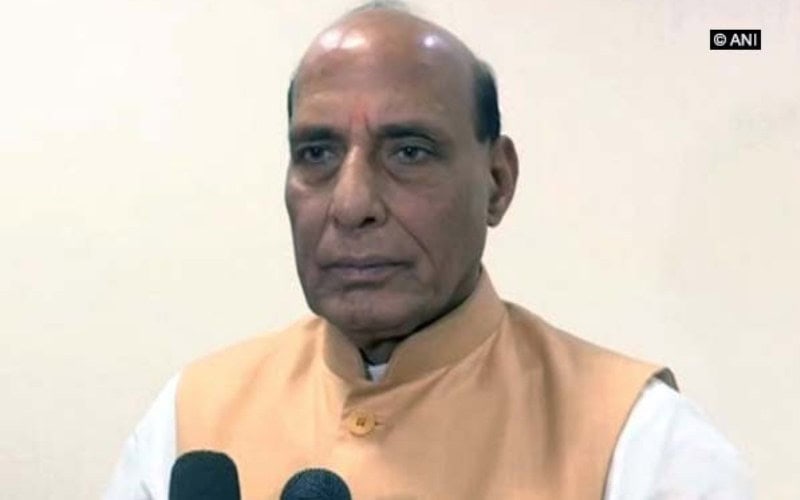Guwahati: Union Home Minister Rajnath Singh on Tuesday inaugurated a 61-km long smart fencing between India and Bangladesh in Assam’s Dhubri district, saying that the entire India-Bangladesh border would gradually be fenced using smart technology.
Called BOLD-QIT (Border Electronically Dominated QRT Interception Technique), this is the third smart fence project launched under the Comprehensive Integrated Border Management System (CIBMS) after two similar projects covering a 10-km stretch on the India-Pakistan border were inaugurated last year.
CIBMS involves deployment of a range of state-of-the-art surveillance technologies — thermal imagers, infra-red and laser-based intruder alarms, aerostats for aerial surveillance, unattended ground sensors that can help detect intrusion bids, radars, sonar systems to secure riverine borders, fibre-optic sensors and a command and control system that receives data from all surveillance devices in real time.
“In September 2018, two pilot projects of ‘smart’ border fencing built under the CIBMS programme were operationalised in Jammu,” Singh told reporters, adding that over a period of time the complete border will be covered.
He also said that implementation of the project will help in integration of manpower, sensors, networks, intelligence and command and control solutions to improve situational awareness at different levels of the hierarchy in order to facilitate prompt and informed decision-making and quick reaction to emerging situations.
The BOLD-QIT project in Dhubri has been implemented along a riverine border and its fencing was a challenge.
The 61-km border stretch where the river Brahmaputra enters Bangladesh includes vast ‘char’ lands and innumerable river channels, making security here an arduous task, especially during rainy season.
Pointing out that the implementation of the projects on both India-Pakistan and India-Bangladesh borders will enhance the capabilities of the Border Security Force (BSF), Singh said: “Our BSF jawans have to do border patrol even during rains. It is a hazardous task and I believe the smart fencing will help them a lot.”
The Union Home Minister also said that though stage-I of the pilot project has been completed in Jammu and Kashmir and Assam, it will be reviewed by the IIT Delhi as an independent third party auditor.
Stages-II and III of the project will target riverine, delta and estuary areas, waterlogged and swampy areas, creeks, plains vulnerable to heavy fog, thickly populated areas, hills, tropical jungles and deserts.
[source_without_link]IANS[/source_without_link]

